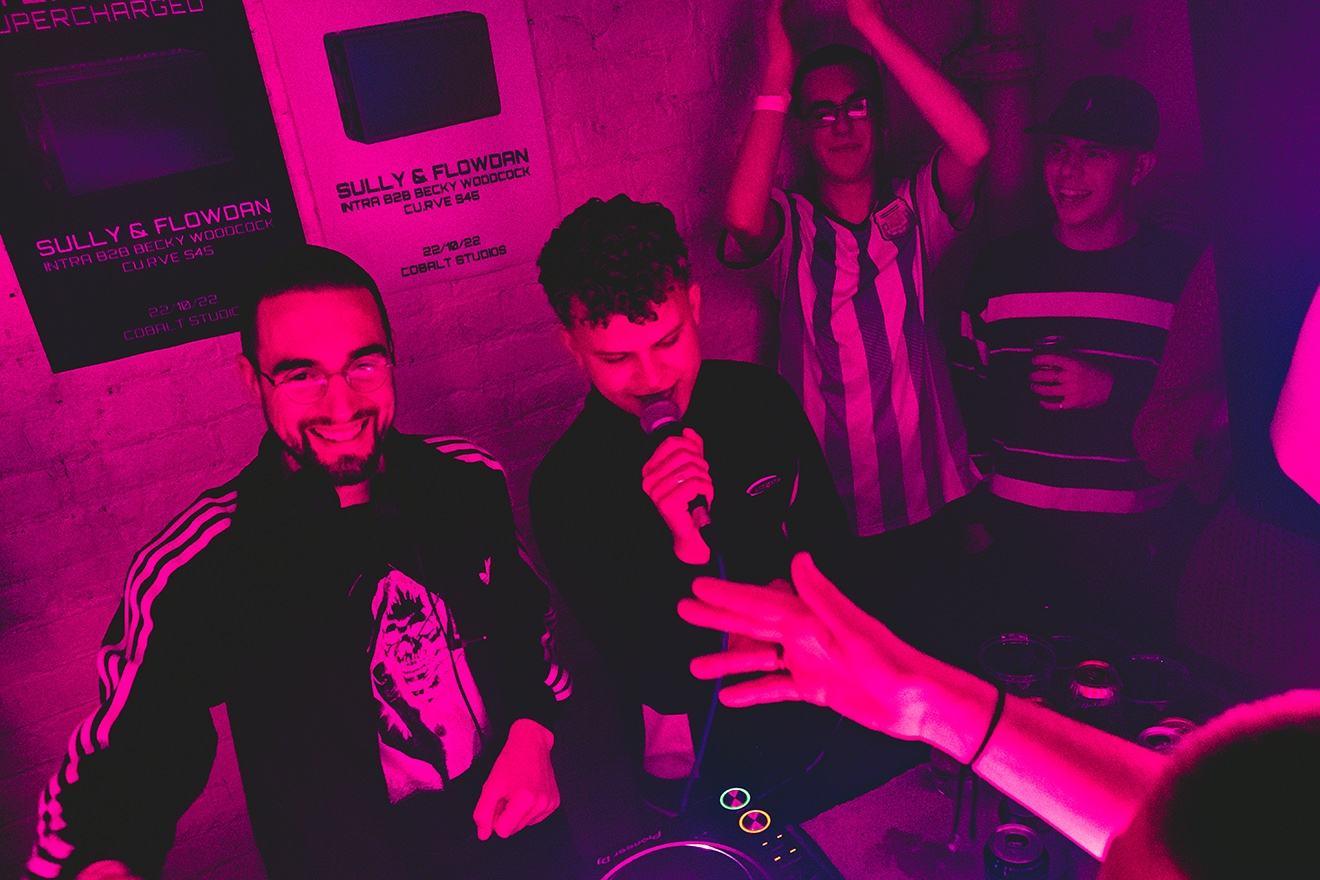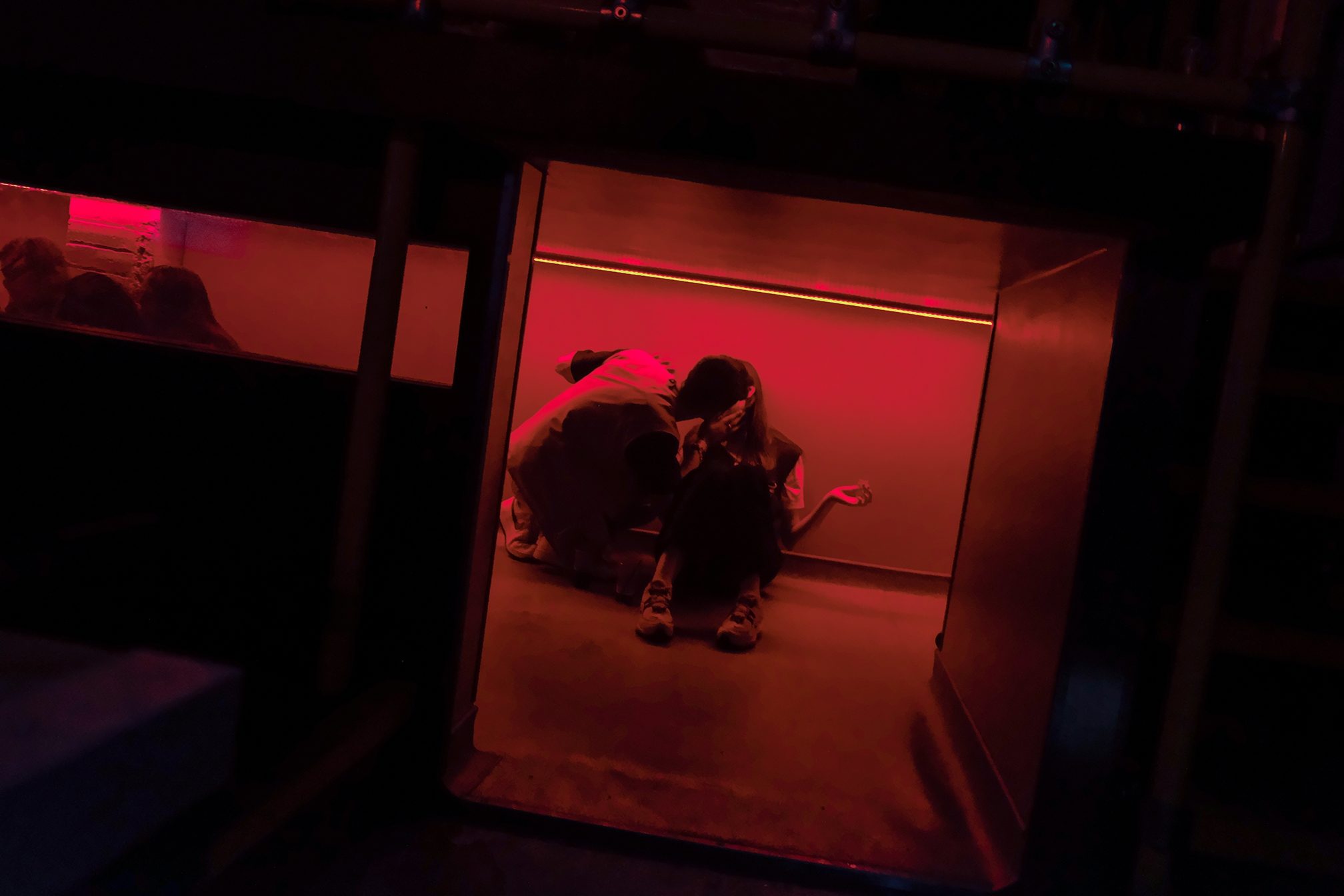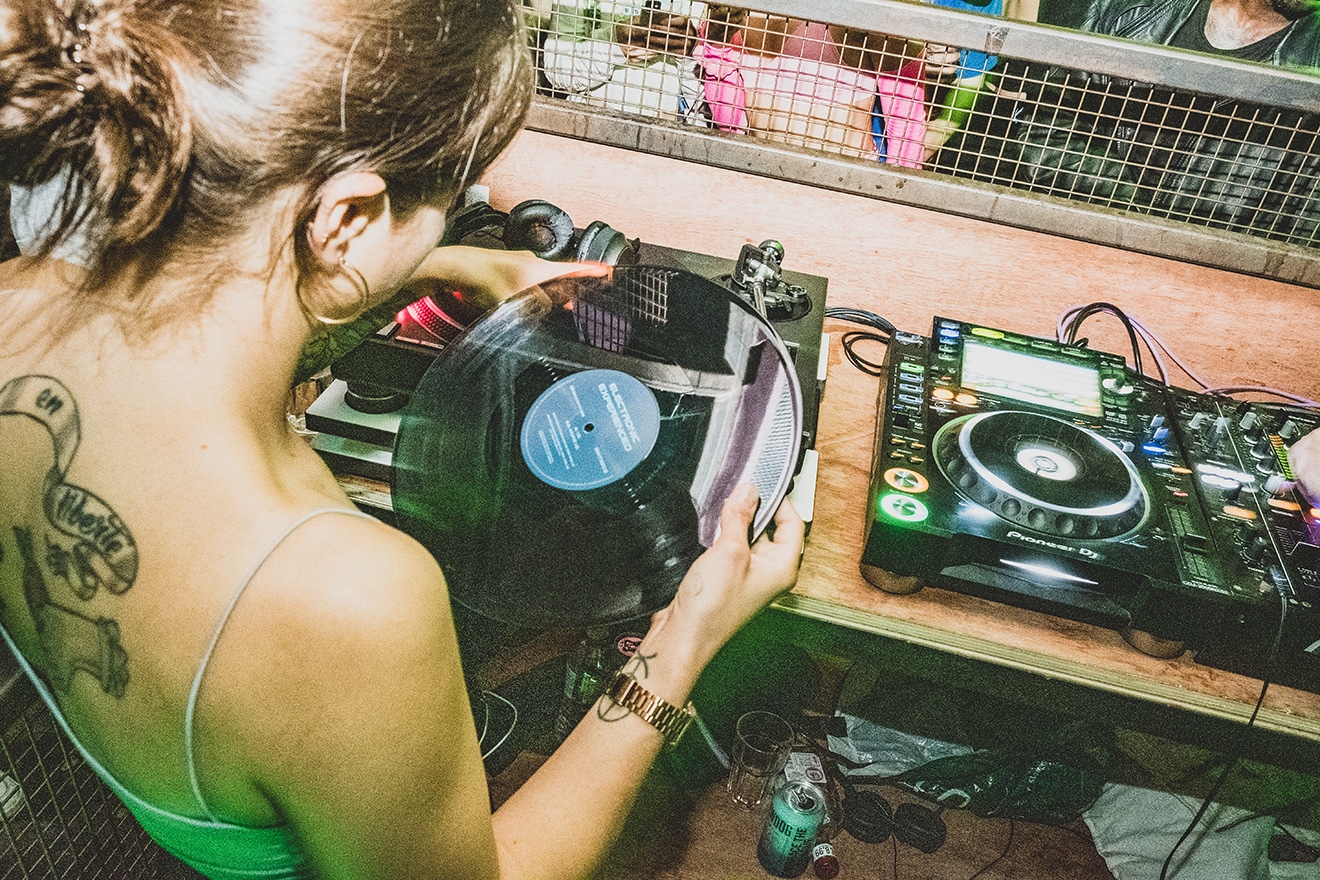 Features
Features
“DJs are surprised when they visit”: Why Newcastle’s DIY clubbing scene is thriving
In the post-industrial North East, grassroots collectives such as STEREO 45, Ghetec and Chain Reaction are building a booming dance music scene. Jack Ramage reports
In the east of central Newcastle, a stone's throw from the River Tyne, STEREO 45 is carving out its own space in the thriving, but overlooked, club scene of North East England. The sound of jungle, footwork and esoteric tunes spanning the 160 BPM realm bellows through the intimate DIY venue of Cobalt Studios. Similar to many cultural spaces in the area, the club was born out of an old warehouse where the ship-building industry once thrived; now music has taken its place.
The night, taking place in October 2022, marks STEREO 45’s first year in operation, a label and collective formed by: Ollie, aka Nectax; Thomas, aka RENOK9000; and Euan, aka SKETCHY RIDA. With a sold-out line-up featuring Sully, Flowdan, INTRA, Becky Woodcock and CU.RVE, the night not only embodies the success STEREO 45 has had in the scene, but also what makes the North East so special: creativity and community in a region often overshadowed by other parts of the country.
“It’s come full circle,” Nectax tells Mixmag, still elated from the night. “We all spent many years going out in the North East and enjoying the aspects of different nights. I think that we all have a different background musically, and that was a nice amalgamation into STEREO 45 being a melting pot of musical influences–the opposite of music pigeonholing, really.”
“We started this all because, at the time, we didn't feel like the nights we really wanted to go to were represented here, music-wise, as well as the vibe,” SKETCHY RIDA continues. “That is part in parcel of geography. [Before we started] people didn't think nights like this could be successful up here: throwing parties that are within the 160 BPM sort of realm.”


Newcastle’s geography is somewhat of an anomaly compared to the rest of Northern England: tucked far away from the metropolitan belt of Leeds, Manchester and Liverpool. It has its own culture, cuisine and dialect, with everything from Geordie slang, which historians trace back to the tail-end of the Roman occupation of Britain, to popular bakery chain Greggs and hyper-localised music genre makina contributing to the post-industrial city’s rich, unique identity — which has an undeniable influence on its clubbing scene.
“Shy bairns get nowt” is a commonly used phrase in Geordie dialect: equating (roughly) to “if you don’t ask, you don’t get.” The city, and the surrounding region, can often feel neglected compared to its Northern counterparts — at least in terms of investment and opportunity. And yet, unlike larger cities, cheaper rent, disused manufacturing spaces and a community spirit have formed the foundation of a thriving grassroots dance music scene.
Read this next: How DIY culture is transforming Leeds' music scene
“Grassroot music scenes are vital for any city, but for Newcastle, we’ve particularly been able to support such a scene,” says Kate Hodgkinson, who runs Cobalt Studios. “We haven't been under the limelight of gentrification that other cities like London, Bristol and Manchester have had.”
“We have more space, more old buildings and more opportunity, if people here want to do stuff there’s room, and it’s not cripplingly expensive,” she continues. “DIY is really important: who wants to go to one city that’s exactly like the next, that’s homogenous and identikit clubbing, an identikit culture?”
Alongside STEREO 45, the music scene in the North East has boomed in recent years, with grassroots collectives like Music Sphere, NE Rising, Shy Bairns, Chain Reaction, Full Force, Big Fat Rave and Ghetec, to name a few, supporting music across the region.
“We have distinct venues here, and people are quite surprised when they visit,” Kate adds. “A lot of DJs that come here often have preconceptions about this part of the county and then they’re pleasantly surprised. There’s also a strong queer community, too. There’s a lot of things that happen that aren't necessarily on social media—you have to dig a little deeper.”

Newcastle's thriving music scene, especially on the DIY level, can partly be attributed to its population and size. “It’s big enough to be a legitimate and diverse city, but also small enough to feel like a big town at times,” Nectax notes. “This extends to the music. There’s a big sense of comradery—at least within the clubbing scene.”
“Everyone kind of knows everyone, or you at least know someone who knows someone. It makes it less competitive,” RENOK9000 agrees. “I hate using the word ‘community’ but it really is, it feels like a large communal space that everyone's involved with.”
Read this next: Newcastle's Ghetec is back and stronger than ever
“That’s the best part about the North East: it’s a small but thriving scene,” Ben Prophet, who co-runs Chain Reaction, adds. “It’s a very, very friendly community up here. We all support each other, if one person’s going to the top, everyone’s going to the top.” This is a view echoed by DJ and producer Boo, who runs Ghetec, highlighting how the “community comes together to share knowledge and equipment to support each other.”

However, despite the numerous benefits of this region, there are drawbacks too. The North East of England suffers unique socio-economic challenges, with the lowest employment rate and lowest wages out of any region in the country, as of December 2022.
Newcastle and surrounding areas have been hit hard by austerity, deindustrialisation and the cost of living crisis. Although there’s an abundance of grassroots collectives and venues, they often fight an uphill battle: an antidote to a deeper-rooted and multifaceted issue that impacts this part of the UK.
Read this next: DIY defiance: Genosys Sound System brought the spirit of '90s rave to Glastonbury
“Newcastle went through a rapid period of deindustrialisation that left hundreds of thousands of people out of work. It caused a lot of hardship. Although Newcastle is ‘post-industrial’, so to speak, a lot of people are still living through the fallout of that initial change in the economy,” RENOK9000 says.
This fallout is felt particularly by working-class individuals who carve out a career in the music industry — with less traditional infrastructure compared to other parts of the UK. “When I was breaking into the scene, I found there weren't as many opportunities compared to people in other cities,” Boo recalls.
“It took eight months to get my first radio gig when I was starting out. It feels like you can’t climb the ladder, especially when you’re not getting paid enough. I think that’s the reason why people are doing DIY events too. People are making their own communities as the infrastructure just isn't there compared to other cities,” Boo adds. “I think that’s the reason why people do DIY events too — we’re making our own scene with what we’ve got.”


Despite the abundance of talent in the area, the city “doesn't have enough venues” to host it, Kate Hodgkinson argues. “We have to turn away 10 promoters for every late-night licence. We also run our own club nights because we need to ensure that more diversity is there; at the moment, the diversity is not here at a regional level yet.”
“Newcastle City Council often doesn’t understand the cultural value of the night-time economy here,” Kate continues. “We’ve often felt misunderstood by them: we need them to understand the value of DIY venues, what it means for our cultural output, and to be more supportive with licences accordingly.”
This is having a knock-on effect on artists trying to make a career for themselves outside of the regional sphere. “Often when you become established in Newcastle as an artist the logical step is to leave the region,” SKETCHY RIDA notes. “You see quite a lot of people who get big leave the city for places like Manchester or London.
“There was a Boiler Room that was hosted here recently, but how much of this is tied down and made territorial to the area?” Renok900 questions. “I feel like not a lot of revenue is pumped into Newcastle, but from a grassroots perspective, a lot is generated here. The moment it's made, however, it feels like it leaves the area. It’s interesting the way money seems to flow out of the city and not towards the area, for things like clubbing at least.”
It’s undeniable that the North East is a region of the UK like no other: with a rich industrial heritage, strong cultural identity and an abundance of local talent. Given the population of this city, it punches above its weight. Despite the challenges faced by decades of economic neglect from the government, grassroots clubbing continues to thrive and is a testament to Geordie resilience. “Up here, our underground music is robust,” RENOK900 concludes. “It feels like no matter what, this type of music will endure — no matter what the odds, the club scene here will always be booming.”
Jack Ramage is a freelance journalist, follow him on Twitter


